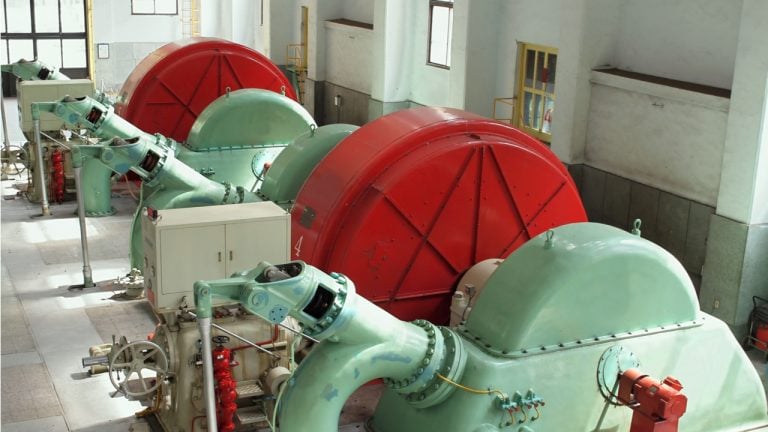Latest news about Bitcoin and all cryptocurrencies. Your daily crypto news habit.

Small hydropower plants have been put up for sale in China as demand for their cheap energy decreases following the government’s crackdown on crypto miners. Just as with mining rigs, their prices have been going down, leaving owners with limited options to recoup their investments.
Ads for Hydropower Plants Appear on Xianyu Marketplace
Advertisements for small-scale hydroelectric power plants have been placed recently on the online marketplace Xianyu, the South China Morning Post reported. The ‘second-hand’ installations come with a capacity of around 50 megawatts. The number of these offerings has increased markedly since the beginning of the government offensive against cryptocurrency miners in May.
Three sellers have confirmed to the daily that the power plants went on sale because of the mining crackdown and one owner remarked that their prices have gone down. Another seller, obviously trying to convince potential buyers, pointed out:
You can secretly mine cryptocurrency if you buy a hydropower station.
Some of the plants on offer are situated in the Chinese province of Sichuan, where local officials reportedly ordered over two dozen crypto mining facilities to shut down operations earlier this month. The region is abundant with water resources providing cheap electrical energy. Local authorities have in the past fostered the symbiotic relationship between bitcoin miners and hydropower stations.
Small Hydroelectric Stations Turn to Crypto Mining
Low-capacity hydropower generating units have spread across other water-rich regions as well, with local governments supporting both private and public facilities. The plants have been instrumental in the electrification of remote rural areas in China where they’ve helped to conserve energy, control floods and alleviate poverty.
The Yangtze River Economic Belt, encompassing nine Chinese provinces, is an example of that cooperation. Towards the end of 2020, the area had 25,000 small hydropower stations in operation, according to data compiled by the state-owned industry media China Energy News.
Not everything has been going smoothly though, with authorities blaming the power plants for damages to the environment and ordering closures. In the Yangtze Belt, around 20,000 of these facilities had to take measures to comply with government standards. A station seller suggested that operators have been turning to cryptocurrency mining because they were not allowed to connect to the power grid.
Environmental concerns are also believed to be behind the government crackdown on the energy intensive bitcoin mining and other industrial activities that could threaten Beijing’s carbon neutrality goals. China plans to cut emissions to 65% of the 2005 levels by 2030. Other affected provinces, besides Sichuan, include Inner Mongolia, Xinjiang, Qinghai and Yunnan.
The ensuing exodus of cryptocurrency miners from the People’s Republic flooded the second-hand markets for ASIC and GPU mining rigs as well. The surplus quickly brought down prices per unit and per hashrate, leading to Bitmain’s decision last week to suspended mining hardware sales and international spot deliveries.
Do you know of other consequences of the Chinese crackdown on cryptocurrency mining? Let us know in the comments section below.
Disclaimer
The views and opinions expressed in this article are solely those of the authors and do not reflect the views of Bitcoin Insider. Every investment and trading move involves risk - this is especially true for cryptocurrencies given their volatility. We strongly advise our readers to conduct their own research when making a decision.
